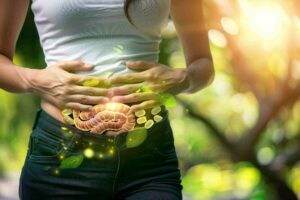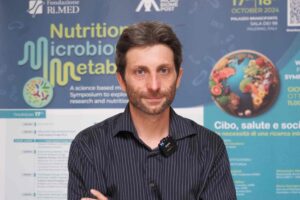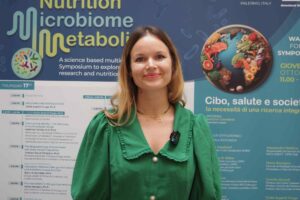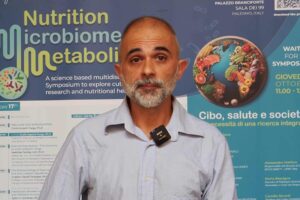diet
Gastroenterology
TCA can help to manage IBD by supporting the gut barrier and influencing microbiota composition.
Gastroenterology
A recent study highlights the potential for dietary interventions in treating C. difficile infection and inflammatory conditions such as inflammatory bowel disease.
Gastroenterology
The findings of a recent study suggest a potential role of gut microbiota and microbial metabolites in the link between sugar-sweetened beverages intake and diabetes risk.
Gastroenterology, Nutrition
Researchers have developed a new approach to restore the gut microbiota by combining a high-fiber, plant-based diet with supplementation of beneficial microbes such as Limosilactobacillus reuteri.
Video
The discussion with Professor Alessio Fasano highlights the complex interplay between homeostatic, hedonic, and microbiota-driven mechanisms in regulating hunger.
Gastroenterology, Cardiology
Nicola Segata, from University of Trento, investigates the intricate links between diet, microbiome composition, and cardiometabolic outcomes.
Scientific research
The findings suggest that bHB could be a therapeutic alternative to a ketogenic diet. The results also highlight the protective role of the gut microbiota and its metabolites in autoimmune…
Gastroenterology, Pediatrics
Clara Delaroque, from Institut Pasteur (France), emphasizes the critical interplay between early-life microbiota and host health, specifically how the use of common food additives impacts the susceptibility to diseases later…
Gastroenterology, Pediatrics
The findings highlight the importance of maintaining a healthy microbiota after EEN and suggest that personalized dietary approaches can help induce remission for children with Crohn’s disease.
Gastroenterology, Events
Konstantinos Paraskevopoulos (European Food Security Autority, EFSA) underscores the importance of microbiome data in assessing the safety of food and feed products across the agri-food chain.











